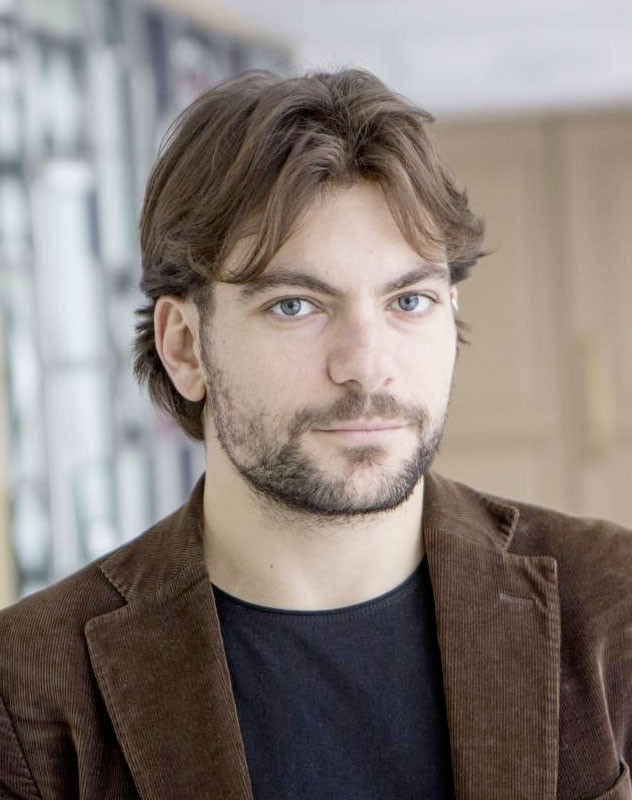KLI Colloquia are invited research talks of about an hour followed by 30 min discussion. The talks are held in English, open to the public, and offered in hybrid format.
Join via Zoom:
https://us02web.zoom.us/j/5881861923?omn=85945744831
Meeting ID: 588 186 1923
Spring-Summer 2026 KLI Colloquium Series
12 March 2026 (Thurs) 3-4:30 PM CET
What Is Biological Modality, and What Has It Got to Do With Psychology?
Carrie Figdor (University of Iowa)
26 March 2026 (Thurs) 3-4:30 PM CET
The Science of an Evolutionary Transition in Humans
Tim Waring (University of Maine)
9 April 2026 (Thurs) 3-4:30 PM CET
Hierarchies and Power in Primatology and Their Populist Appropriation
Rebekka Hufendiek (Ulm University)
16 April 2026 (Thurs) 3-4:30 PM CET
A Metaphysics for Dialectical Biology
Denis Walsh (University of Toronto)
30 April 2026 (Thurs) 3-4:30 PM CET
What's in a Trait? Reconceptualizing Neurodevelopmental Timing by Seizing Insights From Philosophy
Isabella Sarto-Jackson (KLI)
7 May 2026 (Thurs) 3-4:30 PM CET
The Evolutionary Trajectory of Human Hippocampal-Cortical Interactions
Daniel Reznik (Max Planck Society)
21 May 2026 (Thurs) 3-4:30 PM CET
Why Directionality Emerged in Multicellular Differentiation
Somya Mani (KLI)
28 May 2026 (Thurs) 3-4:30 PM CET
The Interplay of Tissue Mechanics and Gene Regulatory Networks in the Evolution of Morphogenesis
James DiFrisco (Francis Crick Institute)
11 June 2026 (Thurs) 3-4:30 PM CET
Brave Genomes: Genome Plasticity in the Face of Environmental Challenge
Silvia Bulgheresi (University of Vienna)
25 June 2026 (Thurs) 3-4:30 PM CET
Anne LeMaitre (KLI)
KLI Colloquia 2014 – 2026
Event Details

Topic description / abstract:
What are the factors that determine the evolution of species that can coexist in a specific ecosystem and why a generalist species do not compete until the exclusion of the remaining species to maximize its fitness is still an open question. There are few studies and theories that clearly explain why the number of niches is so variable through ecosystems and how can several similar species live in the same environment. Our recent work showed that the number of niches in an ecosystem depends on the number of species extant in a particular time and that the species themselves allow the enhancement of niches in terms of space and number. I firstly resumed these hypotheses, after some empirical studies, in the Biodiversity-related Niches Differentiation Theory (BNDT). Then we showed that biodiversity can indeed be considered a system of autocatalytic sets. Successively, we argued that niche partitioning, as a way to coexist, could be a limited means to share the environmental resources and condition during evolutionary time. Therefore, we proposed that niche emergence is what mostly drives ecological diversity. This research line constitutes the basis for the concept of ecological autocatalytic networks (ecoRAFs), how this can give rise to an expanding process of niche emergence (both in time and space), and how these networks have evolved over time (so-called evoRAFs). This approach might be useful to estimate, with a power-law, the extent of extinction events and the “potential” number of species that could evolve in an ecosystem or in the whole biosphere. We are now exploring the deep implications of these novel ideas on life cognition, evolutionary patterns, and economic theories.
Biographical note:
Roberto Cazzolla Gatti, Ph.D. is an Associate Professor at the Biological Institute and the Head of the MSc Program in Biodiversity at Tomsk State University, Russia since 2015.
In 2018-2019, he also served as a Research Associate at the Department of Forestry and Natural Resources of Purdue University in the USA and as a Visiting Professor at Beijing Forestry University in China. Moreover, he works as a freelance documentary photographer and wildlife filmmaker.
He studied at a Science High School and then graduated in Biology (Bachelor’s Degree), defending a thesis in Marine Ecology, and in Environmental and evolutionary biology (Master’s Degree MSc) defending a thesis in Zoology and Anthropology (“Primate visual system and stereopsis”) at the University of Bari, Italy. He holds a Ph.D. in Forest Ecology earned at the University of Tuscia in Viterbo, studying the tropical forests of Africa and their biodiversity (Ph.D. in Tropical Forest Ecology).
He also holds with merit a Postgraduate Master’s Degree in International Policies and Global Environmental Protection earned at the Tuscia University in collaboration to the Italian Ministry for the Environment, defending a thesis on “Africa: biodiversity and climate change”.
He attended the Summer School of Specialization in “Biodiversity and Ecosystem Services” at the Potsdam Institute for Climate Impact Research (PIK), Germany with training in Peyresq, Alpes de Haute-Provence, France. He is specialized in the study of biodiversity (with applications in evolutionary biology and ethology) and global ecology (with application in environmental physiology and conservation biology). He collaborated for many years as a consultant with FAO-UN and WWF. Currently he collaborates as a Reporter with In Natura magazine, as the Scientific Director with Villaggio Globale magazine and as an Editorial Board Member with Ecological Modelling journal.
He is a member of the CEM (Commission on Ecosystem Management), SSC (Species Survival Commission) and the WCPA (World Commission on Protected Areas) of the IUCN. He published several naturalistic guidebooks, a novel-essay book, three academic textbook in English, Italian and Russian and five photographic books.


